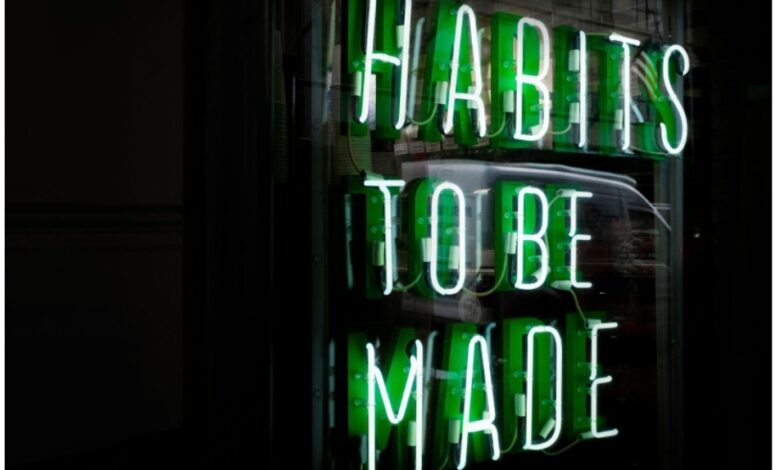Mood-Boosting Habits That Don’t Rely on Sugar or Screens

We all have our go-to comforts when the day starts to weigh us down. Some reach for sugary treats, others scroll endlessly through social media. But as convenient as these habits are, they tend to offer short-lived relief, and sometimes leave us feeling worse. In the pursuit of more sustainable wellness, people are turning to gentler, healthier alternatives to support their emotional balance. Swapping your afternoon latte for something like mushroom coffee or matcha may seem small, but comparing mushroom coffee vs matcha is just one example of how subtle shifts can make a noticeable difference in your mood.
Let’s explore everyday practices that naturally elevate mood, without relying on sugar highs or screen time, and most importantly, that you can maintain long term.
1. Begin Your Day With Natural Light and Movement
A well-lit morning has the power to reset your internal clock and improve both mood and alertness. Exposure to natural daylight, especially in the first hour after waking, helps regulate circadian rhythms and enhances serotonin production, your brain’s feel-good chemical.
Try pairing sunlight with gentle movement. A short walk, stretching session, or light yoga flow can get your blood circulating and give your brain the oxygen it craves. These activities also release endorphins, which are linked to lower stress and improved well-being.
2. Fuel With Intention (Not Just for Energy)
What you eat (and when you eat it) can directly affect your emotional resilience throughout the day. Instead of skipping breakfast or reaching for a sugar-laden pastry, opt for slow-digesting carbs, healthy fats, and lean proteins. These keep blood sugar levels steady and your mind focused.
Also, hydration plays a role, mild dehydration is often associated with irritability and fatigue. Start your day with a large glass of water, possibly infused with lemon or mint.
Drinks like green tea, matcha, and functional blends such as mushroom coffee can support a calmer form of alertness. They often contain adaptogens or L-theanine, which promote relaxation without sedation. If you’re curious about better options, comparing mushroom coffee vs matcha may help you find a gentler start to your morning that supports mental clarity without the crash.
3. Practice Breath Awareness Throughout the Day
Breathwork doesn’t have to mean long meditation sessions. Even pausing for one or two minutes to take controlled, deep breaths can dramatically reduce stress levels.
Try the 4-7-8 technique (inhale for 4 seconds, hold for 7, exhale for 8) or box breathing (inhale-hold-exhale-hold for 4 seconds each). These simple techniques activate your parasympathetic nervous system, encouraging your body to exit “fight or flight” mode.
They’re especially effective when done before meetings, after difficult conversations, or during any moment of emotional turbulence.
4. Build in Screen-Free Micro-Breaks
We often turn to screens for distraction when we’re mentally drained, but this can compound the problem. Studies have shown that excessive screen time is linked to decreased mood and increased anxiety, especially when used as an emotional crutch.
Instead, build in screen-free micro-breaks during your day. Set a timer every hour to step away from your device, even just for five minutes. Step outside, tidy a surface, stretch, or make a cup of tea. These resets create mental space, reduce overstimulation, and help you come back to your tasks with more clarity.
5. Prioritise Social Connection in Real Life
Nothing lifts the human spirit like genuine connection. Yet in our hyper-connected world, real-life social interactions often take a backseat to digital communication.
Make time each week to speak face-to-face (or at least voice-to-voice) with friends or family. Join a local class or hobby group to meet new people in a low-pressure setting. Studies suggest that quality social interaction is one of the strongest predictors of happiness and emotional resilience.
The UK’s Office for Health Improvement and Disparities reports that strong social relationships are linked to lower rates of anxiety and depression, and even physical health benefits such as lower blood pressure and longer life expectancy.
6. Create a Gentle Evening Wind-Down Ritual
How you close the day matters just as much as how you start it. Instead of collapsing in front of a screen, consider crafting an intentional evening ritual.
This might include:
- A warm herbal drink or calming adaptogen blend
- Gentle stretching or self-massage
- Journaling three things you’re grateful for
- Dimming the lights 90 minutes before sleep
- Listening to instrumental music or nature sounds
These rituals tell your body that it’s safe to relax, which can reduce nighttime anxiety and help you drift into deeper sleep, a major factor in emotional regulation.
7. Engage With Your Senses in the Present Moment

Often, we seek out sugary foods or mindless scrolling when we feel emotionally ungrounded. Instead, explore grounding techniques that engage your senses.
For instance:
- Smell: Light a candle with a scent that calms or energises you
- Sound: Listen to birdsong, instrumental music, or binaural beats
- Touch: Run your hands over natural textures, wood, stone, plants
- Taste: Savour a piece of fruit or a warming drink without multitasking
- Sight: Watch clouds move, notice colours in your room, or look at natural patterns
These small acts are often more powerful than they seem. They draw you back into your body and into the present, which is where calm and clarity often live.
Sustaining emotional well-being doesn’t require cutting everything you love or diving into extreme regimens. Often, it’s about gentle, conscious choices, replacing automatic habits with intentional ones. Whether it’s switching your morning beverage, stepping outside for five minutes, or texting a friend instead of doom-scrolling, these small moments accumulate.
Mood support doesn’t have to be loud or dramatic. Sometimes, it’s just about paying attention, and giving yourself what you truly need, instead of what’s most convenient.



